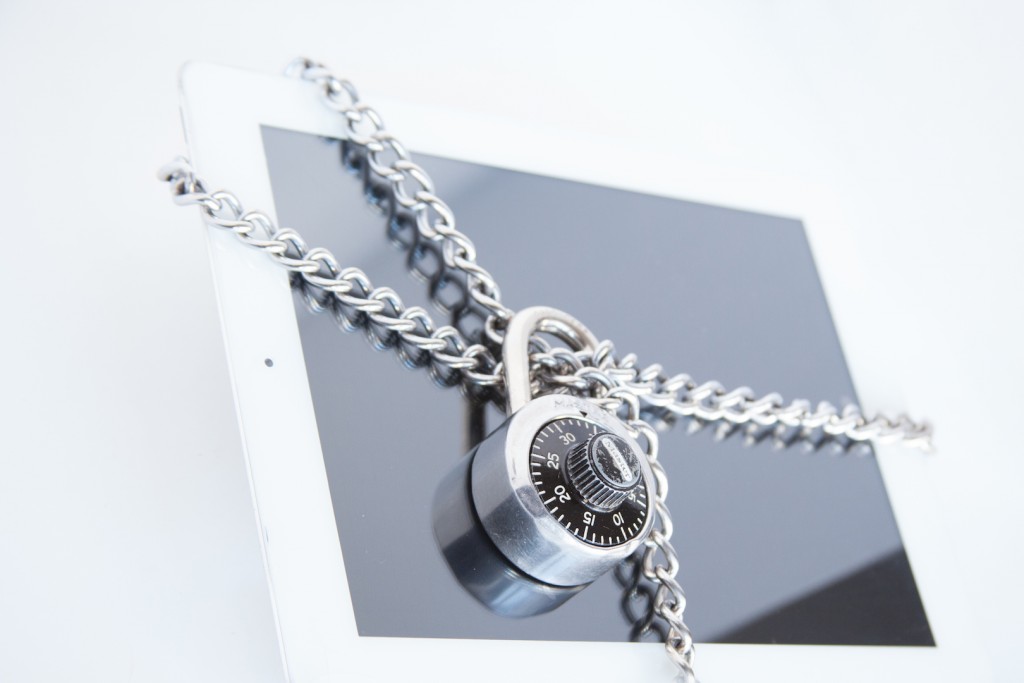Training

Many state, nonprofit, and private organizations have been increasing their cyber training programs in order to cope with the increased risk of cyber threats, and resulting demand for trained cyber professionals. Below we provide a list of some of these training resources available.
For information about IT and cyber certifications, please see the Cyber and IT Certifications page, and for information about training opportunities specific to individual positions and tasks, visit the National Initiative for Cybersecurity Careers and Studies (NICCS), part of the DHS and NIST National Initiative for Cybersecurity Education (NICE).
Defense Cyber Crime Center (DC3)
DC3’s mission is to deliver superior digital forensics and multimedia lab services, cyber technical training, research, development, testing and evaluation, and cyber analysis capabilities supporting cyber counterintelligence and counterterrorism, criminal investigations, intrusion forensics, law enforcement, intelligence community, critical infrastructure partners, and information operations for the Department of Defense. DC3 offers the Defense Cyber Investigations Training Academy (DCITA), providing classroom and web-based cyber investigative and incident response training to Department of Defense agencies to protect information systems from unauthorized use, and criminal, fraudulent, and foreign intelligence activities.
| Free courses available? | In-person? | Online? | Sophistication (novice-expert) | Topics covered |
| Free, but must be federal agency, or under MOU | Yes | Yes | All levels | Computer search and seizure, Network intrusions, Digital forensics, Basic and advanced forensic examination, Online undercover techniques |
Department of Justice, Computer Crime and Intellectual Property Section (CCIPS)
The Department of Justice, Computer Crime and Intellectual Property Section (CCIPS), also provides training and outreach to state and local law enforcement, prosecutors, and government officials. In addition CCIPS attorneys are available to speak to prosecutors, law enforcement and others regarding a range of IT, cybersecurity and privacy topics. For more information, or to request a speaker, please visit http://www.justice.gov/criminal-ccips/arranging-speakers.
| Free courses available? | In-person? | Online? | Sophistication (novice-expert) | Topics covered |
| Yes | Yes | No | All levels | Responding to the threat of cybercrime, protecting privacy and public safety online, international issues in and efforts to fight computer crime, electronic evidence, ECPA, cyber-ethics, legal issues regarding electronic transactions and processes, and more. |
FBI Cyber Shield Alliance – Virtual Academy Cyber Certification Program
The Federal Bureau of Investigation’s (FBI) Cyber Shield Alliance provides extensive resources for state, local, tribal, and territorial (SLTT) law enforcement partners via the Law Enforcement Enterprise Portal to access eGuardian as a way to report cyber incidents, to share intelligence, and to access federally sponsored training. SLTT partners are encouraged to participate in the FBI Cyber Task Forces in their areas. Personnel will work with FBI agents and analysts on cases and receive access to the Bureau’s training curriculum through the Virtual Academy platform. The Virtual Academy contains an Introductory Class Suite (recommended below) as well as a Hardware and Software Suite, a Networking Suite, a Security Suite, and an Enhanced Security Suite, which may prove useful to FLOs, depending on their specific area of responsibility (AOR) roles and responsibilities.
Law enforcement personnel can sign up for the Cyber Shield Alliance through the FBI’s Law Enforcement Enterprise Portal (LEEP) at https://www.cjis.gov. LEEP was formerly known as the Law Enforcement Online (LEO) portal. Once you are on LEEP, find the Virtual Academy Special Interest Group (SIG) and begin searching the course catalog for classes and topics of interest.
| Free courses available? | In-person? | Online? | Sophistication (novice-expert) | Topics covered |
| Yes | No | Yes | All levels | Defend and counter cyber threats against law enforcement networks and critical technologies |
Federal Law Enforcement Training Centers (FLETC)
FLETC provides standardized training for federal law enforcement officers and agents. Classes may be taken online or onsite in Georgia, or exported by mutual agreement. Some current class options include basic incident response to digital evidence, computer network investigations, covert electronic surveillance, covert electronic tracking, internet investigations, digital evidence analysis, Macintosh forensics, mobile device investigations, seized computer evidence recovery, and Wi-Fi Tools for Analysis and Geolocating.
| Free courses available? | In-person? | Online? | Sophistication (novice-expert) | Topics covered |
| Yes | Yes | Yes | All levels | Digital evidence, computer network investigations, covert electronic surveillance, internet investigations, mobile device investigations, geolocation, etc. |
National Computer Forensics Institute (NCFI)
NCFI training courses are offered by the US Secret Service to state and local law enforcement, prosecutors and judges through funding from the federal government. Travel, lodging, equipment (in some classes), and course fees are provided at no costs to attendees or their agencies. Topics include digital forensics, electronic crime investigation, online social networking and more.
| Free courses available? | In-person? | Online? | Sophistication (novice-expert) | Topics covered |
| Yes | Yes | No | All levels | Digital forensics, electronic crime investigation, online social networking |
National Criminal Justice Training Center (NCJTC)
The NCJTC boasts more than 300 experienced criminal justice practitioners as well as the resources developed over a 20-year history of providing training and technical assistance to every state and U.S. territory. NCJTC offers a wide range of training and technical assistance programs that can be adapted and tailored to meet specific needs. Training is available online, in-house at your facility, or in one of NCJTC’s many training facilities.
| Free courses available? | In-person? | Online? | Sophistication(novice-expert) | Topics covered |
| Mainly free, but can customize class offerings | Yes | Yes | Focused on novice and intermediate courses | Digital evidence investigations, CyberTip reporting for exploited children, Peer-to-Peer and Undercover Chat Investigations, investigating Computer Crimes |
National District Attorneys Association (NDAA)
NDAA’s mission is “to be the voice of America’s prosecutors and to support efforts to protect the rights and safety of the people.” NDAA provides training on digital technology and forensic evidence (including computer forensics). These classes are designed for prosecutors and are held in-person only.
| Free courses available? | In-person? | Online? | Sophistication (novice-expert) | Topics covered |
| No | Yes | No | Novice and Intermediate | The Digital Prosecutor, digital technology and forensic evidence (including computer forensics) |
National White Collar Crime Center (NW3C)
NW3C provides a nationwide support system for law enforcement and regulatory agencies involved in the prevention, investigation and prosecution of economic and high-tech crime. Training options include instruction in all areas of economic and cyber crime investigation and prosecution. Classes are taught at regional training facilities.
| Free courses available? | In-person? | Online? | Sophistication (novice-expert) | Topics covered |
| Free to law enforcement | Yes | Yes | All levels | Basic computer skills, cyber investigations, computer crime, financial crime and intelligence analysis |
Regional Computer Forensics Laboratory (RCFL)
The RCFL is a one stop, full service forensics laboratory and training center devoted entirely to the examination of digital evidence in support of criminal investigations. Training is available in one of the nationwide training centers.
| Free courses available? | In-person? | Online? | Sophistication (novice-expert) | Topics covered |
| Free to law enforcement | Yes | No | All levels | Digital evidence, introduction to the RCFL, forensic toolkit, and cell phone investigations |
SEARCH, The National Consortium for Justice Information and Statistics
For over 40 years SEARCH has provided training to local, state, tribal and federal justice and public safety agencies nationwide. While many of the products and services are provided at little or no cost under grant opportunities, SEARCH also offers the option to contract for training tailored to one’s needs.
SEARCH provides several computer-related online training courses for law enforcement personnel investigating crimes with a possible cyber link, such as gangs, homicide, vice, property crimes, narcotics, or high-tech crime. In order to access the SEARCH no-cost federally funded courses, users must request access to the online learning portal.
| Free courses available? | In-person? | Online? | Sophistication (novice-expert) | Topics covered |
| Yes | Yes | Yes | Focused on novice and intermediate | Crime involving handheld computing devices, social networking sites investigative tools and techniques, network investigation and digital triage |
WiredSafety
WiredSafety is the largest and oldest online safety, education, and help group in the world. Originating in 1995 as a group of volunteers rating websites, it now provides one-to-one help, extensive information, and education to cyberspace users of all ages on a myriad of Internet and interactive technology safety, privacy and security issues. These services are offered through a worldwide organization comprised entirely of unpaid volunteers who administer specialized websites, resources and programs.
| Free courses available? | In-person? | Online? | Sophistication (novice-expert) | Topics covered |
| Yes | No | Yes | Novice | Cyberdating, cyberbullying, identity theft |







